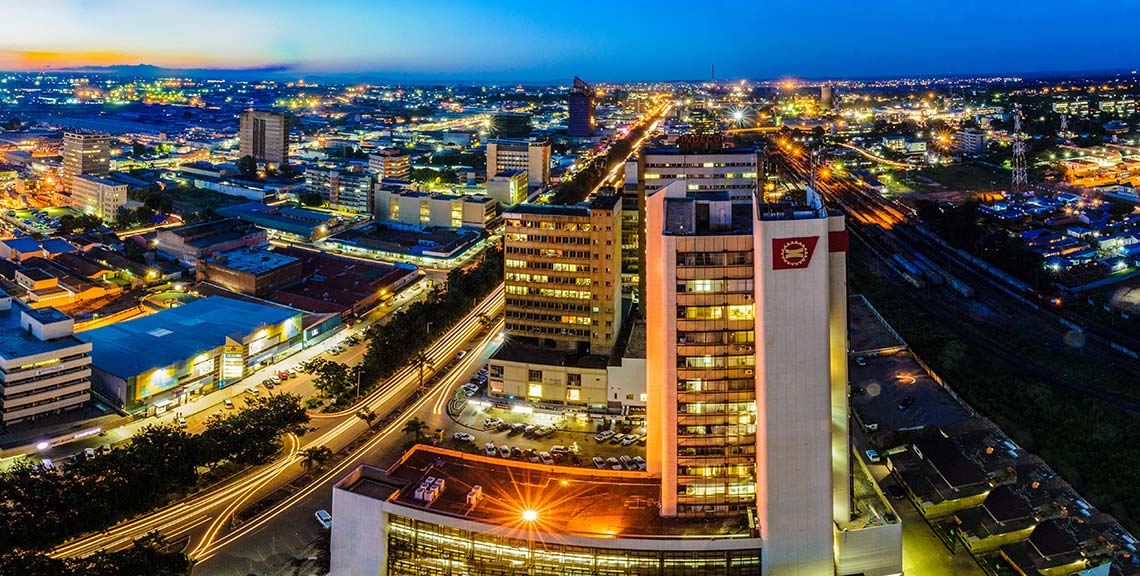Market Research in Zambia, Africa

Zambia is home to the world-famous Victoria Falls. This landlocked country in South-Central Africa sits on a plateau. Several waterways surround it. With over 18 million people, Zambia is also home to over 70 ethnic groups. It has a small Asian presence and expatriates from Europe, Britain, and South Africa.
One of Zambia’s primary drawbacks is infrastructure. It lacks bridges over large rivers and streams and has poor road networks in rural areas. Almost a half-century ago, the borders closed due to guerrilla warfare in neighboring South Rhodesia (present-day Zimbabwe). Since then, the road networks are improving. Still, there’s room for further development.
Neighborhoods
Zambia’s capital, Lusaka, is one of Africa’s fastest-growing cities. New buildings are going up everywhere. Shopping malls and chain stores are springing up all over the sprawling suburbs. The markets are hives of activity with thousands of stalls. They house a myriad of restaurants, motor spares dealers, fishmongers, hairdressers, and fruit sellers. You’ll also find row upon row of “salaula” – stalls of used clothing from the West sold to Africa by the bale.
Kitwe is the second-largest city in Zambia and is the hub of the Copperbelt area and the principal commercial and industrial center in the country. Kitwe is a modern city with a cinema, a theater, and several hotels. It is a popular choice for industrial developers, and it has several industries. For example, Kitwe produces batteries, clothing, and furniture. It also has thriving consumer goods, cement, and asbestos production industries.
Trends
Zambia is experiencing a significant demographic shift. It is a young country in terms of median age. Close to half of Zambia’s population is under 15 years old. Zambia has a high fertility rate, and the population is showing rapid growth. It doubles every 25 years or so.
The country faces the threat of prolonged impacts from COVID-19. The pandemic has contributed to a decline in several economic activities. Poverty is increasing due to heavy job losses in tourism and manufacturing. This situation, if prolonged, may affect economic growth.
Key Industries
Copper and cobalt mining is the primary industry in Zambia, but agriculture, forestry, fishing, textile manufacturing, and tourism are also promising ventures. Export crops include tobacco, cotton, fresh vegetables, and flowers. The country also exports gemstones, copper wire, cables, chemicals, and chemical products. In addition, it manufactures equipment and machinery.
Corn, millet, peanuts, cassava, and sorghum are the primary food sources for local consumption. Further, Zambians have a robust timber industry with several species of exotic softwoods. The country has improved sugarcane production for the local and domestic markets. Zambian farmers also grow wheat, tobacco, tea, and coffee.
Also, a large section of the population depends on other woods to create charcoal. This charcoal serves as cooking fuel to rural homes. Fishing is also a thriving economic option due to the profusion of lakes, rivers, and swamps.
What is significant is Zambia’s rich supply of some of the world’s largest emerald deposits. Furthermore, there are other gems like tourmaline, aquamarine, and amethyst. Zambia also produces cosmetic-grade talc, gold, cobalt, iron ore, silver, and scrap metal.
Zambia’s main export partners include:
- China
- South Africa
- Switzerland
- The Democratic Republic of Congo
Consumer Base
Almost half of the Zambian population lives in towns or cities. Thus, it is one of the most urbanized countries in Africa. This trend seems set to increase in the coming years as the economy continues to grow. More and more poor rural dwellers are moving to these urban areas, which is a plus for some businesses.
Reasons to Grow Your Business in Zambia
Zambia is safe, with a stable form of government and warm, friendly people. It has challenges in some sectors. Still, this lower-middle-income country is rich in several natural resources. These resources can fuel economic activity. Although the GDP fell recently, the outlook remains favorable. Zambia is ripe for investments in copper mining, tourism, and manufacturing.
About Market Research in Zambia
Are you researching the economic outlook and growth rate for Zambia? Are you searching for good investment opportunities? Then we can put you in an excellent position to explore several exciting prospects. Our extensive study includes Qualitative, Quantitative, and Strategy Research methods. We will help you to make an informed decision about investing in this resource-rich country.


